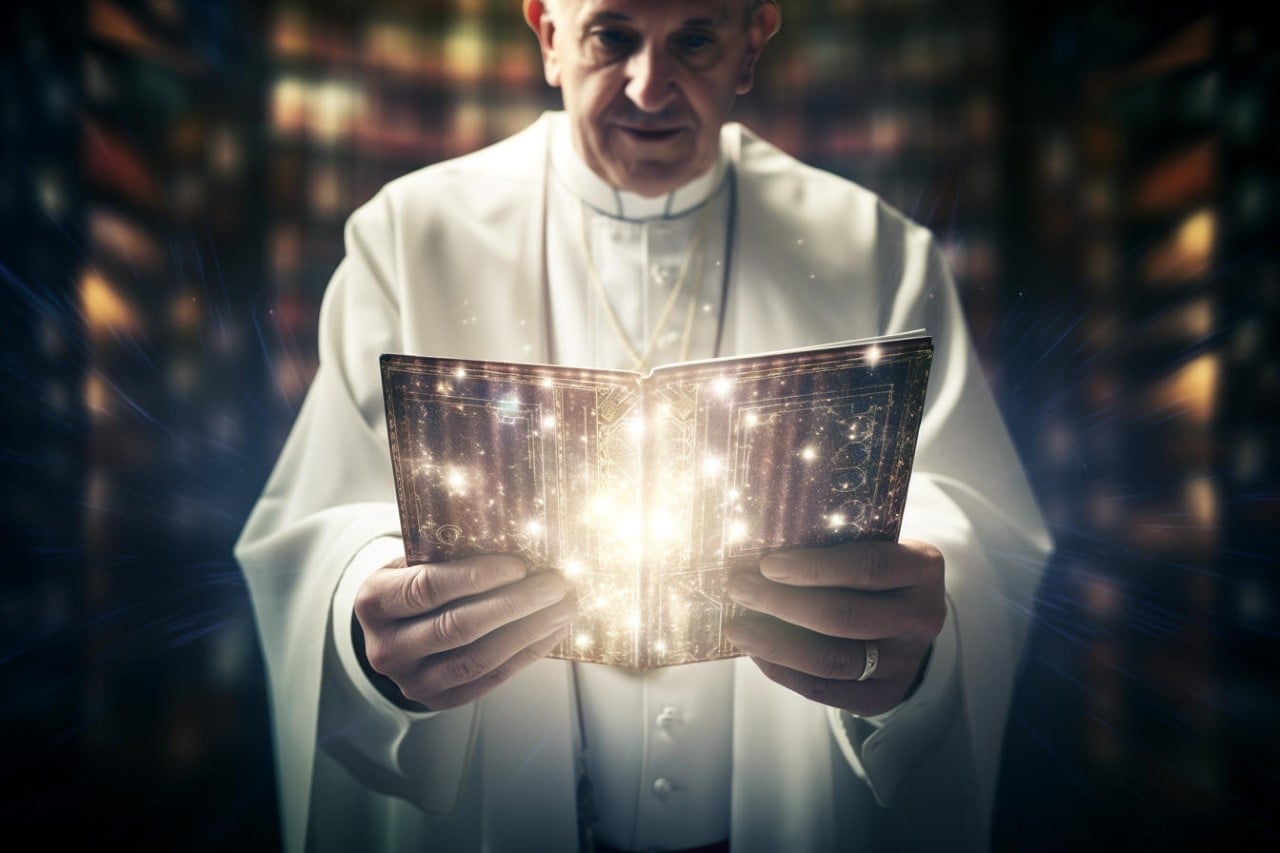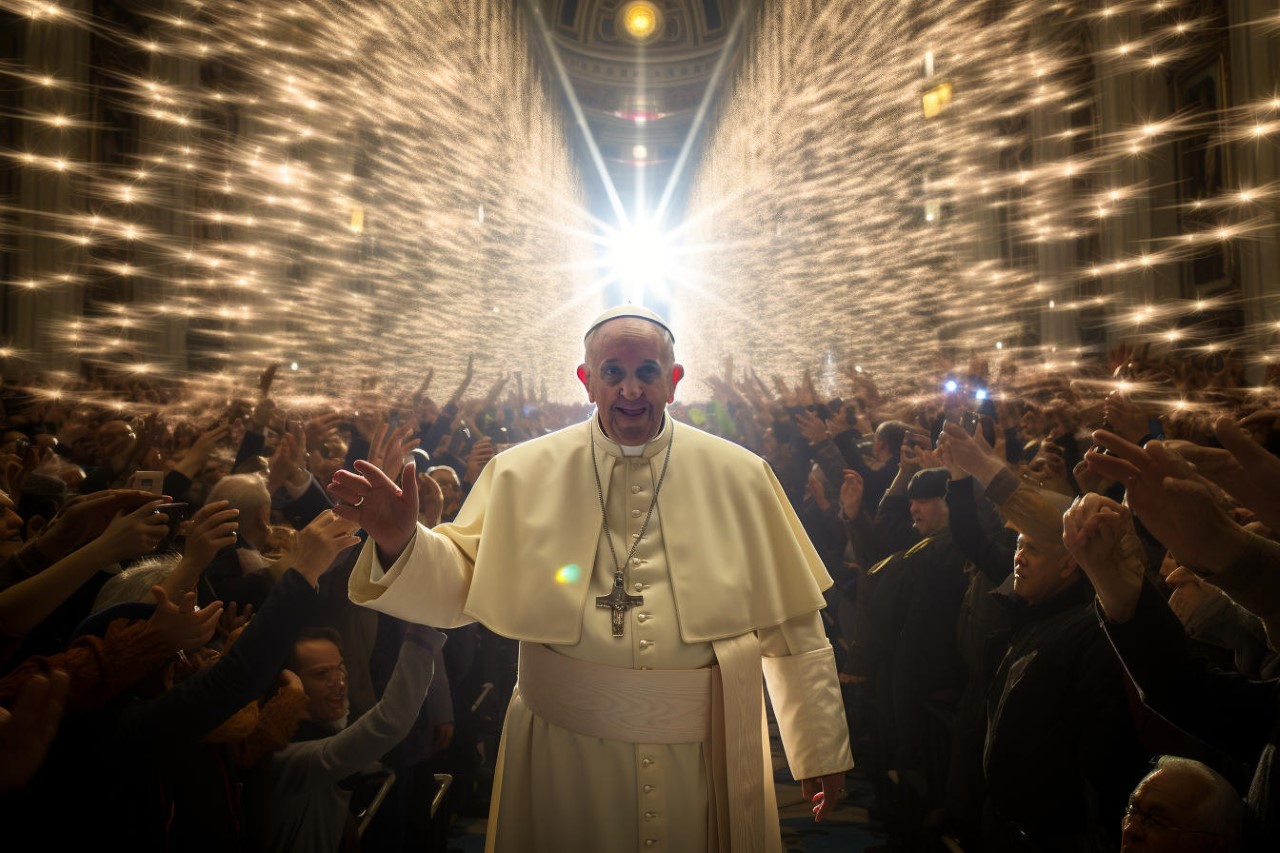
I’d personally call it the ‘Cyble’ (a Cyber Bible) if I had a say in the matter… My 11th Commandment would probably be “Thou shalt remain Open Source”.
It seems that the AI world is taking even religion by storm. Earlier this month, we encountered a first-ever AI-generated sermon delivered to the visitors at St. Paul’s church in the Bavarian town of Fuerth. Taking cognizance of just how powerful this technology is, the Vatican, in partnership with Santa Clara University, has formed ITEC (Institute for Technology, Ethics, and Culture). Their first order of business, drafting the ITEC Handbook to help avoid an AI-fueled apocalypse.
Although it may not be immediately apparent, His Holiness and his colleagues are well-suited to offer their perspective on artificial intelligence. Father Brendan McGuire, who serves as the pastor of St. Simon Parish in Los Altos and advises ITEC, believes that this initiative aligns with the church’s longstanding interests. He asserts that the Vatican possesses a distinct capability to convene influential individuals for meaningful discussions. “The Pope has always had a large view of the world and of humanity, and he believes that technology is a good thing. But as we develop it, it comes time to ask the deeper questions,” Father Brendan said as he spoke to Gizmodo. “Technology executives from all over Silicon Valley have been coming to me for years and saying, ‘You need to help us, there’s a lot of stuff on the horizon and we aren’t ready.’ The idea was to use the Vatican’s convening power to bring executives from the entire world together.”

The ITEC Handbook, titled “Ethics in the Age of Disruptive Technologies: An Operational Roadmap” is a collaborative effort between Pope Francis of the Vatican, and Santa Clara University’s Markkula Center for Applied Ethics. While many experts and scholars focus on regulatory approaches to AI ethics, the ITEC handbook adopts a different strategy. Rather than waiting for governmental regulations, it aims to empower individuals within tech companies who are already grappling with complex ethical dilemmas posed by AI. The handbook introduces an anchor principle for companies to build their values around: “Ensuring that our actions are for the Common Good of Humanity and the Environment.” While this principle may seem broad, the ITEC handbook offers a systematic breakdown of this guiding principle into seven specific guidelines. These guidelines, including “Respect for Human Dignity and Rights” and “Promote Transparency and Explainability,” are further dissected into 46 actionable steps, complete with definitions, examples, and implementation strategies.
As we enter truly uncertain times, the Vatican sees this as an opportunity to provide its guidance… not necessarily for AI, but for how humans use and develop AI. Fortunately enough, the Vatican and its leader, the Pope have always stood as symbols of guidance, especially through uncertain times like these. “Major guardrails are absolutely necessary, and countries and governments will implement them in time,” says Father Brendan. “But this book plays a significant role in fast-tracking the approach to design and consumer implementation. That’s where we’re trying to enable companies to meet the standards we need way ahead of time.”
You can download the ITEC Handbook here.
Images via Midjourney
The post An “AI Bible”? Pope Francis and the Vatican issue their own Ethics Handbook for Artificial Intelligence first appeared on Yanko Design.
via https://ift.tt/a6G8Pgp
Post a Comment
Note: Only a member of this blog may post a comment.